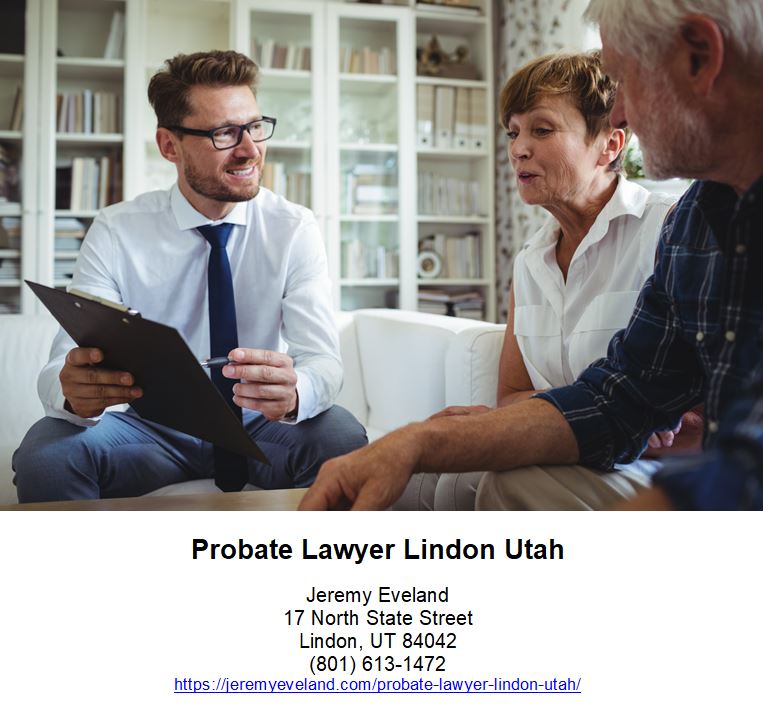Are you facing legal concerns regarding probate in Utah? Look no further than the Utah Probate Court blog, where you can find essential information and guidance. Our aim is to provide reassurance and make a genuine emotional connection with our readers. From addressing common legal concerns to optimizing our content for search engines, we strive to deliver valuable insights. If you’re seeking prompt assistance, don’t hesitate to call the attorney listed on our website. Let us help you navigate the complexities of probate court in Utah.
Overview of the Utah Probate Court
The Utah Probate Court is an essential component of the legal system in the state of Utah. It plays a crucial role in overseeing the probate process, which involves the administration of a deceased person’s estate. In this comprehensive article, we will explore the various aspects of the Utah Probate Court, including its purpose, key functions, probate process, requirements and procedures, issues addressed, probate court versus non-probate transfers, fees and costs, timeline and duration of the probate process, Utah probate laws and regulations, avoiding probate in Utah, and frequently asked questions. So let’s dive in and gain a better understanding of the Utah Probate Court and its significance.

What is Probate?
Before delving into the specifics of the Utah Probate Court, it is important to grasp the concept of probate. Probate refers to the legal process of administering a deceased person’s estate, including distributing assets, settling debts, and resolving any disputes or challenges that may arise. The primary goal of probate is to ensure that the decedent’s assets are used to satisfy their obligations and that the remaining assets are distributed to the rightful beneficiaries according to the decedent’s will or the state’s intestacy laws. The Utah Probate Court oversees and facilitates the probate process in accordance with state laws and regulations, providing guidance and resolving any issues that may arise.
The Purpose of the Utah Probate Court
The Utah Probate Court serves multiple purposes that are integral to the administration of estates and the protection of individuals’ rights. First and foremost, it provides a legal forum for probate proceedings, ensuring that the process is conducted in a fair and transparent manner. The court acts as a neutral third party, overseeing the probate process and making decisions based on the applicable laws and evidence presented. Additionally, the probate court is responsible for validating wills, settling disputes among heirs and beneficiaries, and ensuring that the decedent’s final wishes are carried out. By upholding the rule of law and promoting fairness, the Utah Probate Court plays a vital role in providing individuals with peace of mind and confidence in the probate process.

Key Functions of the Utah Probate Court
The Utah Probate Court performs a range of functions to facilitate the administration of estates and ensure an orderly probate process. Some of the key functions include:
Opening a Probate Case
The first step in the probate process is opening a probate case with the Utah Probate Court. This involves filing the necessary documents and forms, such as the petition for probate and the decedent’s will (if available), to initiate the proceedings. The court will review the submitted documents to determine their validity and appoint an executor or personal representative to oversee the estate administration.
Identifying and Valuing Assets
Once a probate case is opened, it is essential to identify and value the assets of the deceased person. This includes gathering information about their real estate, bank accounts, investments, personal belongings, and any other assets they may have owned. The Utah Probate Court may require an inventory of assets to ensure a comprehensive understanding of the estate’s value.
Notifying Creditors and Settling Debts
One of the critical functions of the Utah Probate Court is notifying creditors of the deceased person’s passing and giving them an opportunity to file claims against the estate. The court oversees the process of settling debts and claims, ensuring that all legitimate obligations are addressed and paid from the estate’s assets. This protects the decedent’s creditors and prevents the estate from being unduly depleted.
Distribution of Assets
After settling debts and claims, the Utah Probate Court supervises the distribution of the remaining assets to the beneficiaries named in the decedent’s will or determined by the state’s intestacy laws. The court ensures that the distribution is carried out according to the decedent’s wishes or the legal requirements, providing a fair and equitable resolution for all parties involved.
Closing the Probate Case
Once all the necessary tasks are completed, the Utah Probate Court officially closes the probate case. This involves reviewing the final accounting, ensuring all debts and taxes have been paid, and approving the distribution of assets. The closure of the probate case provides finality to the process and allows the beneficiaries to take possession of their inherited assets.
Requirements and Procedures
To engage in the probate process in Utah, certain requirements must be met, and specific procedures must be followed. Understanding these requirements and procedures is crucial for a smooth probate administration. Here are some key aspects to consider:
Requirements for Probate in Utah
In order to open a probate case in Utah, certain requirements must be met. These requirements may include submitting the decedent’s will, if available, to the court, providing a certified copy of the death certificate, and filing the necessary forms and documents. It is essential to comply with these requirements to ensure a valid and legally recognized probate process.
Choosing an Executor or Personal Representative
Selecting an executor or personal representative is an important decision in the probate process. This individual is responsible for managing the estate, handling legal matters, and ensuring the decedent’s final wishes are carried out. The Utah Probate Court may have specific qualifications and procedures for choosing an executor, so it is crucial to understand and follow these guidelines.
Filing the Necessary Forms and Documents
To initiate the probate process, various forms and documents must be filed with the Utah Probate Court. These may include the petition for probate, the decedent’s will, an inventory of assets, and other supporting documents. It is essential to accurately complete and file these forms to comply with the court’s requirements and commence the probate proceedings.
The Role of the Probate Court Judge
Throughout the probate process, the probate court judge plays a crucial role in overseeing the proceedings and making decisions based on the relevant laws and evidence. The judge has the authority to interpret the decedent’s will, resolve disputes among heirs and beneficiaries, and ensure the fair administration of the estate. It is important to understand the judge’s role and to provide any necessary information or evidence to support your case.

Issues Addressed by Utah Probate Court
The Utah Probate Court addresses various issues that may arise during the probate process. These issues require the intervention and resolution of the court to ensure a fair and just outcome. Here are some common issues addressed by the court:
Validating the Will
One of the primary responsibilities of the Utah Probate Court is to validate the authenticity and legality of a decedent’s will. This involves reviewing the will, ensuring it meets the requirements for a valid will under Utah law, and determining its enforceability. The court considers factors such as testamentary capacity, proper execution, and the absence of undue influence or fraud in validating the will.
Disputes Among Heirs and Beneficiaries
Disputes among heirs and beneficiaries can arise during the probate process, often related to the distribution of assets or the interpretation of the decedent’s will. The Utah Probate Court plays a vital role in resolving these disputes, including facilitating mediation or litigation if necessary. The court will carefully review the evidence presented and make a decision that is fair and compliant with the relevant laws and regulations.
Challenges to the Appointment of an Executor
Sometimes, challenges may arise regarding the appointment of an executor or personal representative. This may occur if there are concerns about the person’s ability or suitability to fulfill their responsibilities, or if there are disputes about the validity of their appointment. The Utah Probate Court will review the circumstances and evidence surrounding the challenge and make a determination in the best interest of the estate and its beneficiaries.
Contesting the Validity of a Will
In some cases, interested parties may contest the validity of a decedent’s will, claiming that it was executed improperly, that the decedent lacked testamentary capacity, or that it was the result of undue influence or fraud. The Utah Probate Court will carefully consider the evidence presented by both parties and make a determination regarding the will’s validity. This process ensures that the decedent’s final wishes are honored while safeguarding the rights of potential heirs and beneficiaries.




